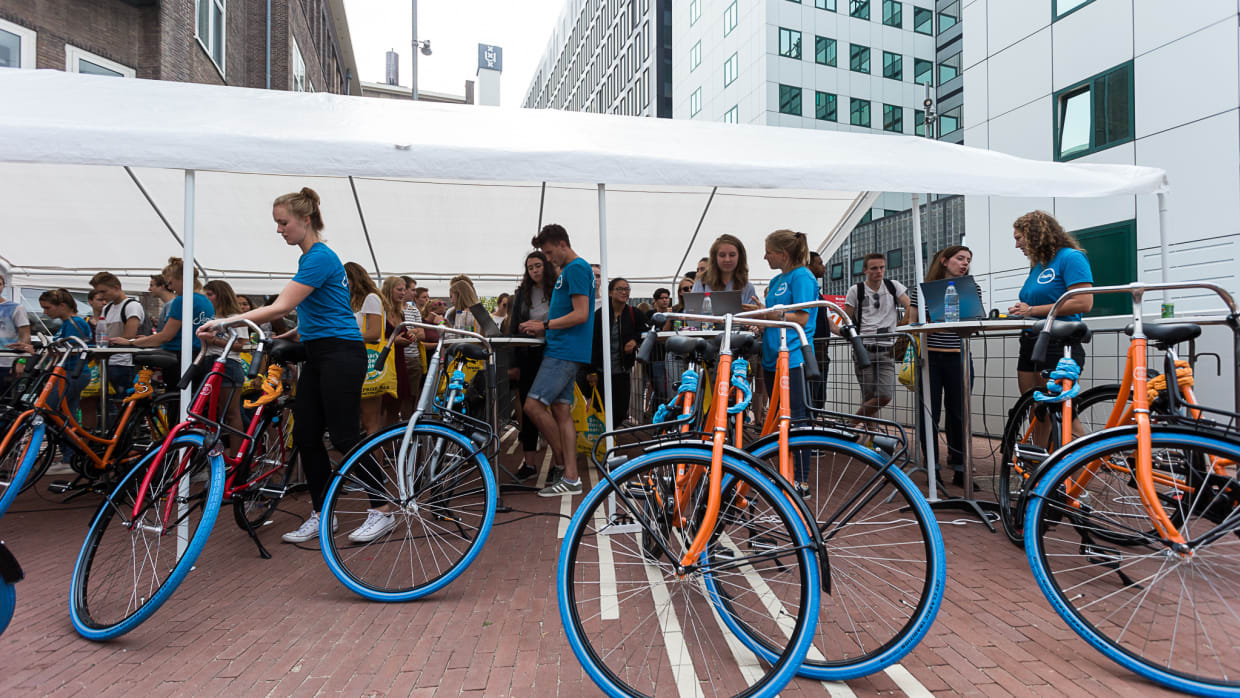Vitality platform developed on SAP technology sets foot in the US
Earning digital coins with exercise, which you can then redeem for healthy rewards. The Fitcoin business vitality platform developed on SAP BTP thus positively promotes physical and mental well-being. This formula now also appears to have a following in the US: parent company It’s My Life, together with co-shareholder and consultancy firm Xtra-Advice, is starting a pilot with UC Davis, part of the University of California.
Fitcoin’s concept is smart and innovative: users save digital coins (Fitcoins) via an app on their smartphone. They earn these by exercising: walking, cycling or, for example, by participating in special workshops and sports activities. Users can then exchange the saved Fitcoins for healthy rewards that they choose themselves in the online Fitcoin catalogue on their smartphone.

Own choice
The choice of rewards depends on what each organisation or community makes available and could include, for example, a healthy lunch or tickets to the theatre. But also, for example, a donation to charity, or healthy groceries, fruit and vegetables from the supermarket.
That own choice is a crucial factor, according to Stef Oud, partner at Xtra-Advice. “Many organisations’ vitality programmes have a set character that does not appeal to everyone. Fitcoin doesn’t have that. You choose whether to participate at all, and then also how to spend your earned coins. So the initiative and choice remains entirely with the user.”
Healthy body, healthy mind
The platform currently has a foothold mainly in the Benelux. For example, Fitcoin is currently in use at more than 200 organisations, institutions and municipalities such as Wageningen University and Deloitte in the Netherlands. But the Eindhoven Vitaal foundation also uses the platform, for encouraging exercise among residents of a focus neighbourhood.
According to Oud, the move towards the United States was no accident. “Several of our partners live and work in the US. Two of them, Prof Ron Mangun and Prof Tamara Swaab are professors at the Center for Mind & Brain, part of UC Davis. They study the functioning of the brain and the interaction between body and mind. You can’t separate the two issues. For instance, there is a clear link between enough exercise and a healthy mind. Partly from that perspective, they were interested in the platform.”
XtraAdvice will start with a small pilot for ten UC Davis employees to get the concept well established. Locally, the company is working with SAP to roll out the technical infrastructure. That rollout will be phased. “Within a quarter, we want to scale up the number of users to 100 employees. That should grow to broad ‘coverage’ among staff and students after a year,” says Oud.
Fighting burn-outs
For Xtra-Advice, the collaboration with the university is also a way to gain new insights. For example, on the relationship between the use of Fitcoin and a drop in absenteeism in general and burn-outs in particular. The latter is associated with huge costs in addition to a lot of human suffering. According to TNO’s most recent research in this area, the cost of stress-related absenteeism has reached 3.1 billion euros a year. In that survey, almost half of employees indicated that additional measures are needed in the workplace.
Xtra-Advice wants to show from anonymised data using SAP Analytics Cloud to what extent Fitcoin would be an effective measure. “In collaboration with the Center for Mind & Brain, we will investigate the causal relationship between the use of our platform and the prevention of absenteeism and burnout. A demonstrable correlation is valuable, as it gives organisations a tool to do something about this.”
CSR programme
Anyway, for the university, Fitcoin is a good way to fulfil its Corporate Social Responsibility goals. Participants can then spend their Fitcoins on charities listed in the app. In the Netherlands, Fitcoin therefore already collaborates with organisations such as Spieren voor Spieren, War Child and elderly care.
But solutions in the fight against obesity are also getting a lot of attention in the US. Oud: “Both the state of California and the university present themselves as progressive and sporty. Sport is intimately intertwined with American university culture anyway. At the same time, obesity is a big problem in the US. With Fitcoin, the university can do something about that.”
According to him, the platform is certainly also valuable for less athletic people. “A part of US students exercise very intensively. But through our low-threshold nature, we also hope to encourage precisely those students and staff who are not very sporty by nature, or even struggle with obesity. For them, Fitcoin can really make a difference.”
In addition to all the standard items in the ‘rewards shop’, it will also initially fill up mainly with jumpers, caps and other merchandise from the university itself. “Those kinds of items are very popular in the US,” Oud explains. According to him, it also cuts both ways. “That merchandise with the university logo works as an incentive for Fitcoin participation, but is of course also promotional material. In addition, the platform underlines the innovative nature of the university. That in turn attracts new students. All things we can start looking at based on this first Fitcoin pilot in the US.”



